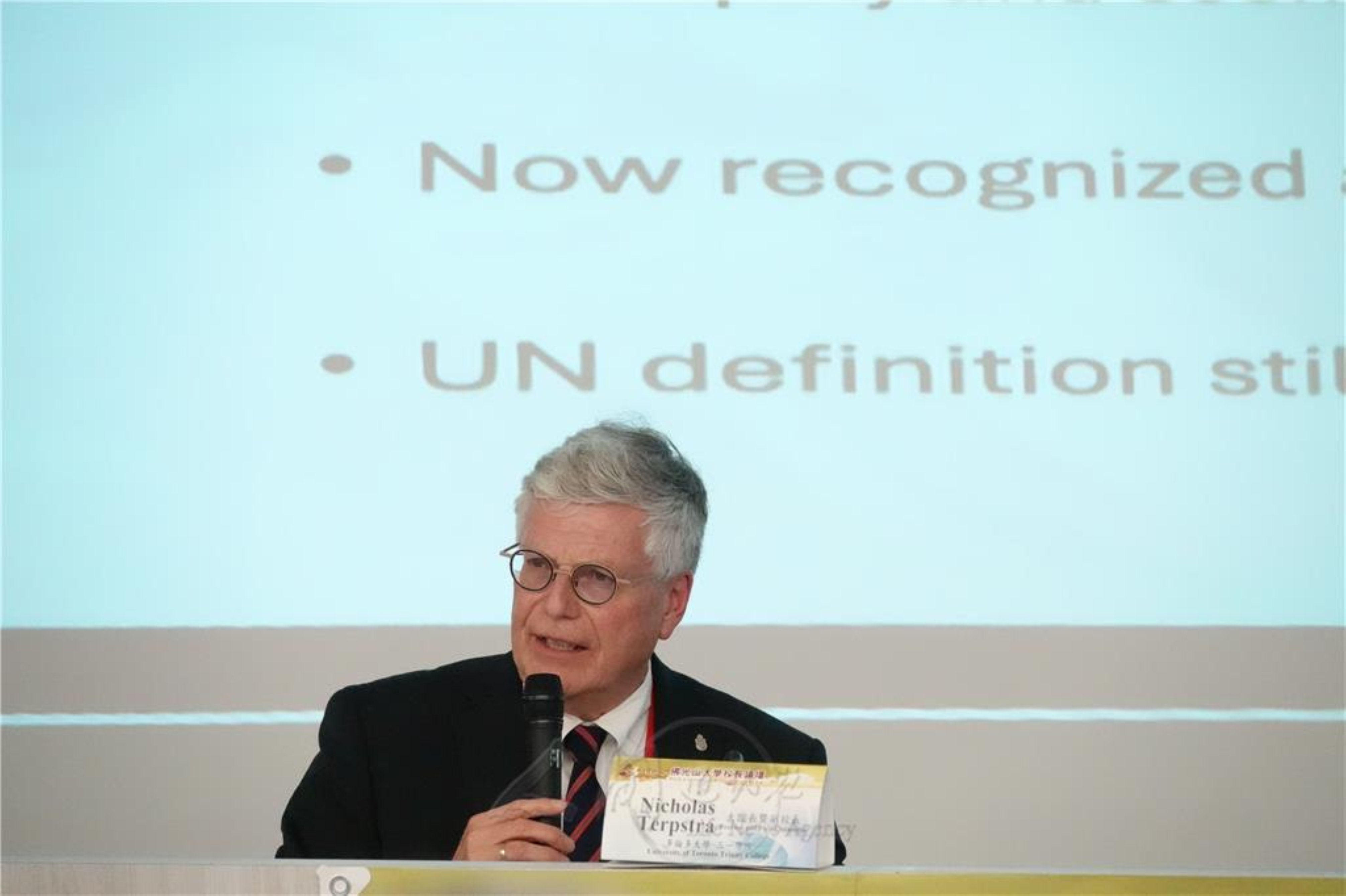
University of Toronto Provost Nicholas Terpstra on Human-Centered Sustainability
Professor Nicholas Terpstra, Provost and Vice-Chancellor of Trinity College, University of Toronto, visited Taiwan for the first time to participate in the 2025 Fo Guang Shan University Presidents Forum. During an interview at Fo Guang University (FGU),he described Taiwan as “a place where modernity and nature coexist in harmony.” He shared his impressions of a vibrant society surrounded by mountains andgreenery, noting that even in the rain, “there is a sense of warmth andpeace—the sound of rain drops on the roof is beautiful.”
Professor Terpstra said he hopes the forum will strengthen collaboration betweenTrinity College and the Fo Guang Shan University Consortium, promoting exchange among scholars, faculty, students, and communities through joint courses, academic forums, and cultural programs—cultivating global citizens grounded inhumanistic concern and social responsibility. “Through the exchange of ideas and sharing of experiences,” he added, “we can build a more humane and just world.” He emphasized that education is not merely about imparting knowledge but about fostering relationships and learning to live together—a spirit of beingtogether that lies at the heart of humanistic education.
Highlighting the shared values of Christianity and Buddhism Professor Terpstra observed that both emphasize compassion and altruism. Trinity College’s commitment to Humanistic Christian Education and Fo Guang Shan’s philosophy of Humanistic Buddhism and the Three Acts of Goodness provide a meaningful foundation for interfaith dialogue and the pursuit of human-centered sustainability.
A specialist in early modern European history, Professor Terpstra studies the origins of Europe-Asia exchange in trade, religion, and culture. He notedthat while early encounters carried colonial complexities, they also fosteredmutual learning and the sharing of knowledge—reminding us that genuineeducation is rooted in dialogue and understanding.
Reflecting on artificial intelligence (AI), he remarked that AI reduces everything to information, whereas the humanities cultivate knowledge and wisdom. “AI can process data efficiently,” he said, “but if werely solely on it, we risk losing depth of thought and growth of the soul.Reading, reflection, and dialogue train both heart and mind—dimensions AI cannever replace.”
